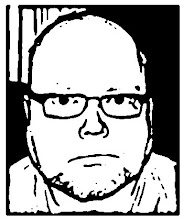I Googled “linear thinking” in hopes of breaking free from the typical view point that I tend to have on poetry. I found this http://www.laetusinpraesens.org/docs/conftran/conftrt.php and it was quiet interesting. The other day I was in the library looking some stuff up. One of which was the simple encyclopedia entry for poetry. It was fascinating and rather long. It talked about standard traditional form, meter, rhythm, rhyme, and so on. I liked it. But I thought to myself (recently), this just might be linear thinking. I know that there has been tremendous efforts in free verse, most of which I know nothing about. And I am quiet sure that there have been made great strides towards avant-guard artistic poetry, but none that I’ve seen. I came up with several conclusions, all of which may be premature or unnecessary. One, I should do more searching for other than the norm poetry. Two, take into context and figure out how to apply cyclical and circular thinking into poetry, in order to break the standard “linear thinking” of traditional form and verse. I think that “Slam” poetry is a great start in that line of thinking. However, the one disadvantage with Slam poetry is that it leaves the page and is more of a performance. For those of us who are stage shy, that just won’t do. BUT, perhaps, leaving the page is cyclical thinking. True enough, standard forms must be rehearsed and practiced in order to master technique. Also true that without first learning the technique, freedom in verse or free verse cannot fully be appreciated. But traditional form doesn’t necessarily bind as much, perhaps, control the words and thoughts which create that frozen in time emotion that the poet is conveying.
To break linear thinking one must apply cyclical or circular thinking. How is this done? Well, many a moon ago, poetry’s foundations started in a spoken tradition, many times to rhythms and beats. Sometimes even by accompanied music. Then the written tradition started, through various means. The Hebrews had a great poetic history, starting with the book of Job. Aristotle also contributed a great deal while advocating tragedy and Greek tradition. The renaissance period hit, with many more “forms” of poetry developing. Much of our current bound verse is a result of French and British poets and poetry traditions, including the Rondeau and the Sonnet. There have also been Asian influences on modern American poetry as well, specifically the Haiku.
Then fellows like Walt Whitman came along and reinforced and even defined Free Verse. Here is a Whitman poem –
The little one sleeps in its cradle,
I lift the gauze and look a long time, and silently brush
away flies with my hand.
-Walt Whitman-
Although this seems rather simple, it is in fact pure genius and at the time, cutting edge. He is most famous for his Leaves of Grass (which can be found in almost any bookstore). Well, he opened up a flood gate and a poetry tradition that has lasted decades, and probably will last a few more if not more. The fact that some people still write Rondeaus and Sonnets tells me that Free Verse will never truly die.
However, that being said, I want to apply cyclical thinking to the patterns of poetry. In this line of thinking, I would say that there is going to be either a return to bound form, or spoken verse, much like Slam. I could also be lacking an enormous amount of insight. I am sure there are individuals seeking, or have sought their doctorate in creative writing, pursuing and musing about such things, and I’m sure they would have a greater insight. This is just me, barely educated, and self-taught in many areas, forming a guess.
My love of speculation is boundless! But I want to get deeper. I want to apply cyclical or circular thinking onto the page itself. Not in speculation of trends and traditions, but on the page itself. How do I, P. Allan, get round? I guess I have more speculation to contend. How do I break the page? How do I leap out, get three dimensional with written words? I feel as though I could really use a writing class or seminar? Perhaps next year!
The Pen Master ©
There is a fine balance between expression and control. Poetry in an excellent way to find that balance. Mastered meter and possibly rhyme, to avant-garde free verse is bent and willed as the poet's great message finds freedom on the page. My goal, to find this balance... Everything on this blog is copyright © by P. Allan Frederick and permission must be granted in order to copy or use any content!
About Me

- Name: P. Allan Frederick
- Location: Eastern Kentucky, United States
I am a passionate and compassionate Biblican who is also deeply into the arts. I can defend doctrines and bring people to God, but I also am a fine art painter and creator and have published poetry in several magazines including Pegasus, Envoi, and a hand full of times in the local paper. I also have a POD Poetry Book which can be bought on Amazon.com called "September Blue" by P. Allan Frederick.


0 Comments:
Post a Comment
<< Home